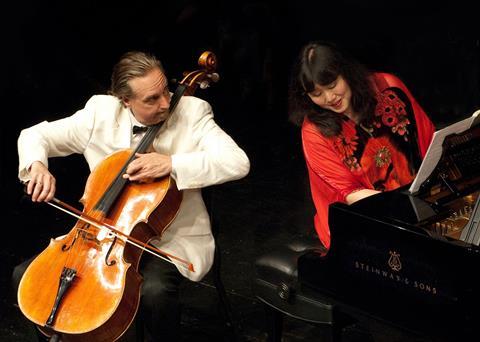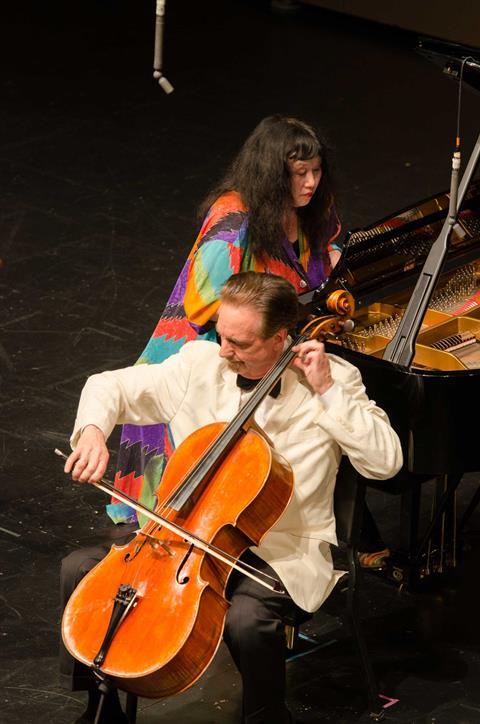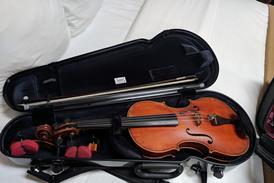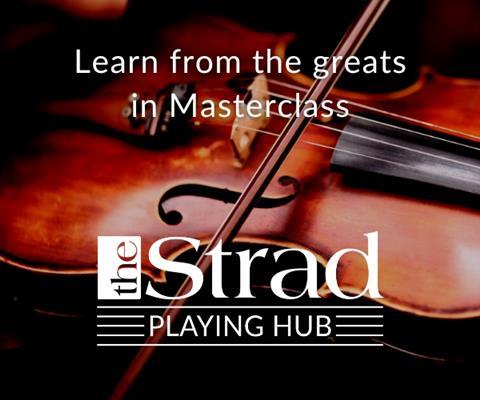David Finckel shares 20 pieces of advice on big-picture topics often forgotten in the teaching room

Read more student and player experiences in our Education Hub
During a typical one-hour music lesson there is rarely a shortage of items to discuss. After we’ve gone over tempi, dynamics, articulation, character, balance, then, for string players, come bowings and fingerings, not to mention sound production. Prior to that we may have talked about the composer, and the culture and era from which the work emerged. That’s many issues to address and lots of information to impart, but it’s not the whole picture if I was to really do a thorough job. What happens between lessons? How are my students conducting their lives out in the real world, where it really counts? Maybe I can help by sharing some friendly advice in the form of 20 reminders.
1. Be prepared
If you have not done your homework for a rehearsal, the playing of your colleagues can suffer from it. Keep in mind that well-prepared musicians not only sound good, but inspire their colleagues as well. Knowing the whole work - not only your part - is what real professionals do, and showing up with a score in hand is not a bad idea.
2. Be consistent
Do you know people who always play at the highest levels musically and technically, who are always cheerful and positive? Are they not the easiest to rely on as opposed to people whose behaviour and performances fluctuate? Are they not the people we feel the most confident walking on stage with to play a challenging work? If you commit to doing something in music you’d better always do it well and on time. If you don’t, somebody else will.
3. Know your material
Knowing notes is one thing but knowing where they came from is another. The personality and priorities of the composer, the age and culture from which the music originated, all play essential roles in leading you to intelligent, defendable interpretations. Plus, you’ll enjoy your music more. Do your homework: read, listen, think.
4. Be nice, supportive, and positive
Music is a tough taskmaster. Your fellow musicians all face challenges of different varieties, and sometimes they are not apparent. However, give your colleagues the benefit of the doubt and make sure they know you are working for their success as well. Negativity has no place in the musical environment, so spread optimism and good cheer.
5. Respect your colleagues
I’ve been fortunate to enjoy and profit from the artistry of my musical colleagues over the years, and I’ve seen that the happiest musicians are those with the ability to easily recognise and openly admire the talent of others. Find what’s special in everyone you work with, and your world will brighten.
6. Learn to accept criticism and try new ideas
A real artist never stops learning, and you can learn something valuable from everyone around you if you open yourself up to that possibility. A criticism of your playing is unlikely to be personal; it usually results from a sense of something missing, something imagined by your colleague who is working, as you are, to make the music sound better. Some musicians can articulate a criticism better than others; those who can’t require you to draw out from them more specifically what they are hoping for. Even if you don’t agree with a new idea, it doesn’t hurt to try it. It might work better than you think, and if it doesn’t, it will likely be obvious to all.
7. Do more than expected
People who produce 100 per cent of what is expected do not grow on trees. Most often, 80–90 per cent is what one can expect. But those who show up with 110 per cent stand out so prominently that they can often erase one’s awareness of others. Wouldn’t you like 110 per cent from your surgeon, for example? It’s no different in music.
8. Be generous
Music can be all consuming, but we should not become self-obsessed. The happiest, most beloved musicians I know have large hearts and are ready to share their good fortune with others in many ways. You can play well and be admired, but it would be nice to be liked as well. The choice is yours.
9. Care for your equipment
All the serious performers I know are meticulous about the condition of their instruments. One of the finest violinists I know visits his luthier every time he returns from tour (which is often). Most string players I know regularly re-hair their bows, change strings, take care of humidity issues, and go for frequent check-ups and adjustments. Professional pianists and wind players maintain their own instruments with similar frequency. Rehearsing and performing on instruments that are not in peak condition can actually create bad playing habits.
10. Look good, sound good, feel good
I once heard a colleague say: ’If you look good, you feel good. If you feel good, you sound good. If you sound good, you look good (etc.)’ As overly simplistic and even funny as this is, there’s a grain of truth to it. Start with a healthy dose of self-respect by taking care of yourself, and that habit will migrate to your other facets.

Read: ‘Go where there is no path and leave a trail’ - Emerson Quartet: We journey together
Read: A Musician’s Ten Commandments: Cellist David Finckel
Listen: The Strad Podcast Episode #53: David Finckel and Wu Han on creating inspiration
11. Leave your problems at home
During the years of often grueling touring with the Emerson Quartet, after some seasons we made a rule: no complaining about anything. Sharing a problem in a personal way - if you need some support - is not unacceptable, but everyone has problems, so bring your own into your musical life with discretion. Remember that in an ensemble, insecurity can be contagious.
12. Be curious
For me, the most enjoyable people to spend time with are those who are by curious by nature or by habit. They are the best dinner guests, travel companions, and yes, the best musical colleagues, as their fascination with everything inspires me and broadens my horizons. It is said that boring people are simply people who are themselves bored. Don’t be one of them.
13. Widen your world
A practice room is a great thing but it doesn’t make you an artist or even a more interesting person. It’s true that there is enough great music to keep you learning for a lifetime, but while expanding your repertoire is important, it’s not enough. The musicians I respect most all have interests apart from music that make them not only more fascinating people but also, I believe, better musicians. The visual arts, literature, theater, and even sports can contribute to your artistry and personal happiness. Budget some time for making yourself a person of depth and variety.
14. Enjoy your work
It seems obvious, but how you feel about playing is the most immediately perceptible characteristic of your performance. Perhaps it’s easier to remember: no one comes to a concert to watch unhappy people suffer on stage. Look for the joy of performance from any source, and wear that on your sleeve.
15. Play for the love of it first and foremost
Many of us began our lives in music because we heard it and wanted to play it ourselves. This was the beginning of a life-long love affair with music that only gets better with time. But sometimes, like in a relationship, it takes work to maintain the affection that drew you to music in the first place. Career disappointments, stage fright, a bad review, and many other events can threaten your love of music if you let them. Don’t. Recall the moment you fell in love with music; go back and listen to the music that made it happen. It will come back.
16. Be at the service of the music
There’s no more foolproof way of keeping one’s head on straight than to proactively devote oneself to the art form. Not to yourself, your manager, your parents; not to fame and fortune or good reviews. To serve the art is at the core of every mission statement I have written for organisations, and it’s the basis of my personal mission. I have not gone wrong with it and it guides me and my organisations with a steady hand, always pointing to the true north of our work.
17. Don’t underestimate your audience
The people you perform for are in the hall because they want to hear music. That’s enough right there for you to respect and be grateful for, but I’m talking about more than that: when you really believe that your listeners - all of them - have the capacity to become more engaged with music, you are working with your audience instead of simply for them. Have faith in them and they’ll sense your commitment to increasing their knowledge and enjoyment of the art form.
18. Play to the listener
When you are alone practising, remember that you are preparing to play your music for someone else. I’m sure you would do that if you were practising a speech. If your mind is set that way during your practice, you’ll be more than happy to see your listeners finally show up. You should be saying to them: ’I can’t wait for you to hear this!’
19. Support the composer
We can’t avoid the fact that many, if not most of the composers we play are dead and gone. We can’t ask them how their pieces should sound, yet it’s our job to represent them on stage, to communicate what we think they wanted the audience to hear and feel. Do your research on their lives and other music; come to know them as artists and fellow human beings as much as possible. Then, come to the stage as the composer, and you’ll soon forget about other concerns.
20. Teach
There is no quicker way to learn something than to have to teach it. I learnt music theory and ear training from the age of 12, when I was called upon to teach it at my parents’ summer music camp. I stayed exactly one lesson ahead of each class. I am still teaching and learning from it: new repertoire, how to analyse players’ problems, and how to fix them. And along the way, one develops the skill of articulating ideas clearly, of communicating in words what should happen in the sound. Teaching develops the imagination, the use of metaphor, vocabulary, power of observation, and expressive speaking, all of them important parallels to actual music making.
In celebration of ArtistLed’s 20th anniversary, David Finckel and Wu Han have created a new Resource section of their website, gathering content and information from their learned experiences to share with those who may benefit from it in future musical endeavours. Find out more here: https://davidfinckelandwuhan.com/resource
Read: The Emerson Quartet on the future of string quartet playing
Read: Sentimental work: David Finckel on Myaskovsky’s Cello Concerto
Watch: Cellist David Finckel on vibrato
Read more student and player experiences in our Education Hub



































No comments yet